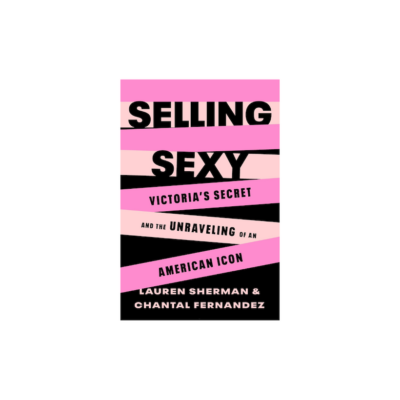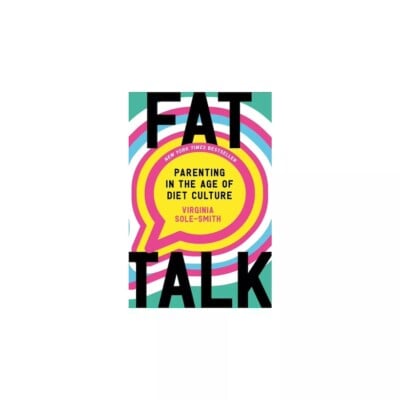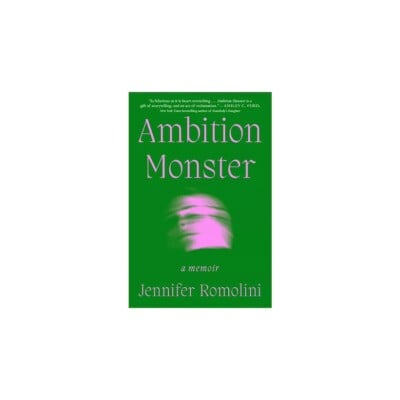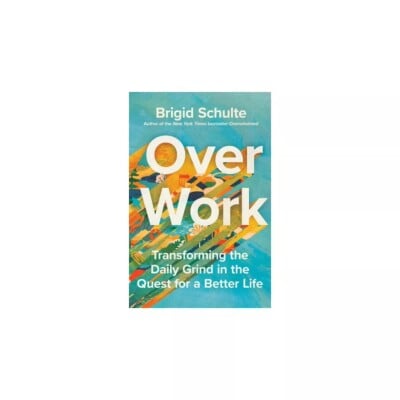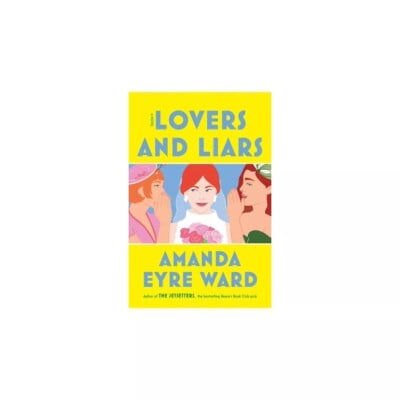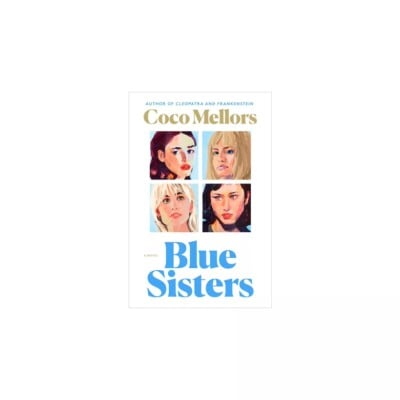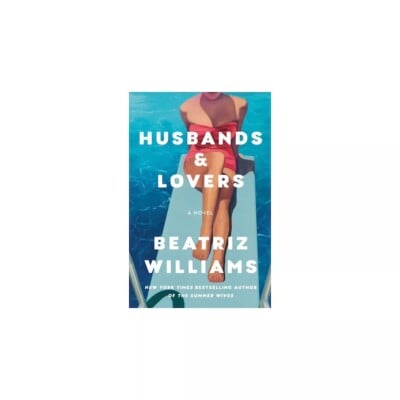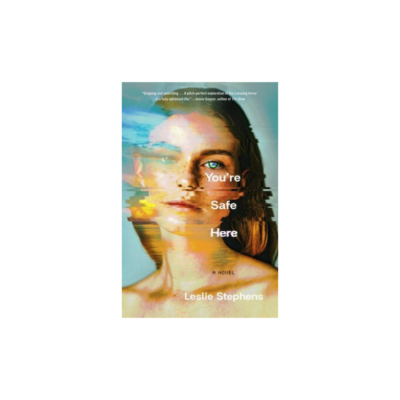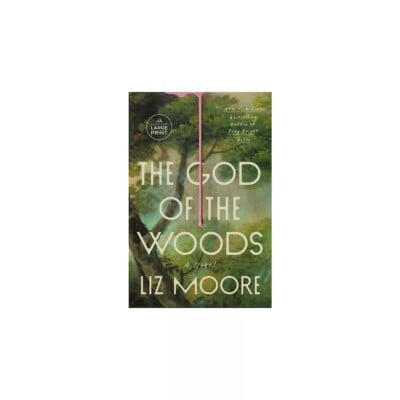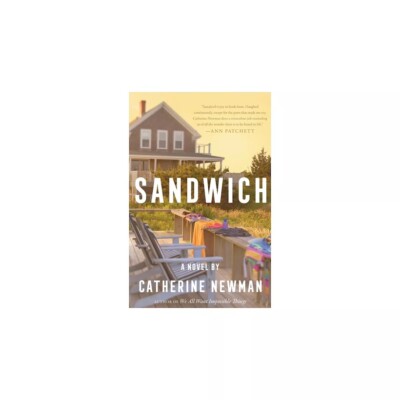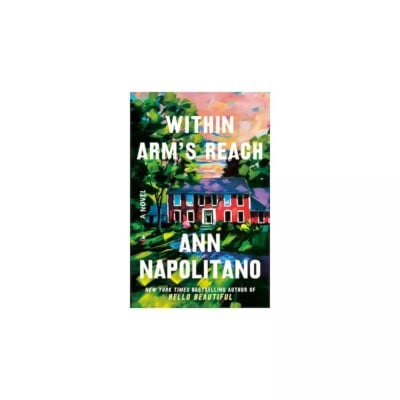There’s a certain magic to book clubs. The joy of gathering with friends, a glass of wine or mug of tea in hand, chatting about a book that has everyone buzzing. They have this way of bringing us together, sparking debate, and deepening our connections with each other. As we close out the summer and turn the corner to fall, it’s time to update our TBR’s and add the best book club books of 2024. Trust me, these picks are book club gold.
You can pick your poison. Whether you’re into memoirs, juicy romances, or conversation-sparking nonfiction, this list has it all. I’ve scoured the best new releases of the year to bring you reads that’ll *actually* have you talking about the book and resonate long after the final page. So, get cozy and settle in (a reading nook, perhaps?) and get ready for the best book club books of the year. After all, what’s better than a great read shared with great friends?


The Best Book Club Books of 2024
From debut novels you need to know (hello, Leslie Stephens‘ brilliance) to the latest releases everyone’s talking about, we’ve curated the perfect list. I’ve chosen each book for its ability to stir emotions and provoke thought. Get ready to be inspired—let’s dive in.
Selling Sexy By Lauren Sherman and Chantal Fernandez
So much has come out about the high-stakes world of fashion and beauty in recent years. But picking up Selling Sexy was truly an education. Written with both sass and substance, this compelling read pulls back the curtain and dissects how the idea of sexiness is sold to us. The book is a thoroughly researched, behind-the-scenes tour of all that drives our desire for the latest trends.
Whereas other documentaries and revealing reads show us just the glossy surface, Selling Sexy dives deep into the tactics and psychology behind the marketing that’s packaged up for our consumption. It’s a fascinating read for anyone curious about how the allure of fashion and beauty is meticulously crafted and sold. Note: It doesn’t come out until early October, but be sure to pre-order—and get excited to binge.
Discussion questions:
- In what ways were your perceptions of the fashion and beauty industries challenged or reinforced?
- What new insights did you gain about the marketing strategies these industries use?
- The book delves into the historical evolution of ‘sexy’ in fashion marketing. How do you think the concept of ‘sexy’ has changed over the decades, and what factors have driven these changes?
- The book explores the tension between empowerment and exploitation in the portrayal of ‘sexy.’ How do you feel brands can navigate this line more ethically, and do you see any current examples of brands doing this successfully?
- Discuss the role of influencers and celebrities in shaping beauty standards as presented in the book. Do you think their influence is more positive or negative? Why?
Fat Talk by Virginia Sole-Smith
As someone who experienced many of the body image and diet culture traumas presented in Fat Talk, it felt like having a mirror held up to my past. But its powerful storytelling and sharp insights make it an important read for anyone. Because unfortunately, it’s true: diet culture is all-pervasive, and even if you haven’t been the victim of it directly, understanding how it’s impacted others helps build empathy and understanding.
It’s impossible not to be drawn in by Virginia Sole-Smith’s exploration of how deeply ingrained societal pressures shape our self-perception. What I loved most was the humor and heart behind these stories—weaving the promise of self-acceptance all throughout the book. Fat Talk is a refreshing read that challenges us to rethink our relationship with our bodies and instills hope in generations to come.
Discussion questions:
- The book addresses the societal obsession with weight and body image. How did the book change or reinforce your understanding of these issues, and what personal experiences did it bring to mind?
- Virginia Sole-Smith discusses the impact of diet culture on children and adolescents. What were the most surprising or eye-opening points for you, and how do you think we can better support young people in developing a healthy relationship with their bodies?
- The book delves into the intersection of body image with race, gender, and socioeconomic status. How did these discussions enhance your understanding of body positivity and the challenges faced by marginalized groups?
- “Fat Talk” presents various narratives and personal stories. Which story resonated with you the most and why? How did it influence your perspective on body image and self-acceptance?
- Sole-Smith offers strategies for combating diet culture and promoting body positivity. Which strategies did you find most compelling or actionable, and how do you plan to implement them in your own life or community?
Ambition Monster by Jennifer Romolini
We’re officially post-girlboss, and though hustle isn’t coated in Millennial pink any longer, we’re still navigating the future of work and ambition. Ambition Monster fills in the gaps, presenting us with a roadmap for leading a meaningful life beyond the pursuit of success.
Romolini’s fearless dive into the messy, exhilarating world of professional ambition is both refreshing and eye-opening. She blends sharp humor with honest, often brutal truths about putting your ambition before everything else. Beyond that, she peels back the layers on the traumas we often bury beneath our addictions—in Romolini’s case, work—and what happens when we address them head-on.
Discussion questions:
- In Ambition Monster Jennifer Romolini explores the complexities of ambition for women in the workplace. How did her insights resonate with your own experiences or perceptions of ambition?
- Romolini discusses the challenges and stereotypes women face when they pursue ambitious goals. Which examples from the book stood out to you, and how did they shape your understanding of these obstacles?
- The book combines humor with serious reflections on ambition. How did Romolini’s tone affect your engagement with the material, and what moments were particularly impactful or memorable for you?
- Ambition Monster includes strategies for balancing ambition with other aspects of life. Which strategies did you find most useful or relatable, and how do you plan to incorporate them into your own life?
- Romolini talks about redefining success on your own terms. How has reading this book influenced your personal definition of success, and what steps are you inspired to take toward achieving it?
Over Work by Brigid Schulte
In recent years, I’ve designed my life with the intention of simplifying, and Over Work aligned exactly with that approach. It’s a breath of fresh air in a world cluttered with to-do lists and deadlines. Schulte’s work is thoroughly, exhaustively researched, providing a deep dive into the culture of chronic overworking. The book is a much-needed reality check, coupling hard truths with a side of humor.
What I love most is that the pages aren’t just cut-and-dry research. Instead, Schulte couples these facts with personal anecdotes, painting a clear—and sometimes troubling—picture of the chaos we’ve come to accept as normal. Over Work is compelling call to action, inspiring readers to reclaim our time, our headspace, and our lives.
Discussion questions:
- In Over Work, Brigid Schulte examines the culture of overwork and its impact on our lives. What aspects of the book resonated most with your personal experiences of work-life balance, and why?
- Schulte discusses the historical and societal factors that have led to the current state of overwork. Which of these factors did you find most surprising or enlightening, and how do they influence your perspective on the issue?
- The book includes various stories and examples of individuals and organizations striving for better work-life balance. Which story or example inspired you the most, and what lessons did you take away from it?
- Schulte explores the concept of “time confetti” and its effects on our ability to focus and relax. How does this idea relate to your own experience of managing time, and what changes might you consider making after reading the book?
- Over Work offers potential solutions for reducing overwork and creating more balanced lives. Which solutions did you find most compelling or feasible, and how do you plan to implement them in your own work or personal life?
Lovers and Liars by Amanda Eyre Ward
Love, betrayal, and redemption are all at the heart of this fast-moving novel. Think: the perfect pairing of reality show drama with a side of literary sophistication. The characters are multidimensional, the interweaving plots are intricate but cohesively paced, and Ward’s witty and clever writing will have you hooked from page one. It’s full of juicy twists balanced with introspective moments that reveal challenging truths about the nature of trust and forgiveness. Lovers and Liars is deliciously engrossing, filled with insightful prose that’ll make you want to savor every moment.
Discussion questions:
- Lovers and Liars explores complex relationships and hidden secrets. Which character’s story or secret surprised you the most, and how did it alter your perception of them throughout the book?
- Amanda Eyre Ward delves into themes of trust and betrayal. How did the various betrayals in the story impact the relationships between characters, and which betrayal did you find most significant?
- The book’s setting plays a crucial role in shaping the narrative. How did the different locations influence the mood and development of the story? Which setting did you find most impactful?
- Lovers and Liars features a cast of multi-dimensional characters. Which character did you find most relatable or compelling, and why? How did their journey resonate with your own experiences or views?
- The novel tackles the idea of redemption and forgiveness. Do you believe the characters who sought forgiveness achieved it by the end of the book? Why or why not, and how did this theme influence your overall interpretation of the story?
Blue Sisters by Coco Mellors
There are few authors who write a debut so compelling that before you even finish, you’re (not-so-patiently) waiting for their second book. Coco Mellors is that author, and I was fully hooked just halfway through her first novel, Cleopatra and Frankenstein.
Blue Sisters builds on Mellors’ gift for exploring complex relationships, weaving a tapestry of sisterhood, secrets, and self-discovery into her vibrant, resonant writing. Her exploration of the nuance and intricacies that exists between her characters is deeply intimate and universally resonant. There’s both tenderness and an edge to the way she treats familial conflict, driving the plot toward resolutions that underscore genuine connection and personal growth. It’s a beautifully crafted novel—entertaining in its narrative but also powerful in its call to reflect on the complexities present in all family relationships.
Discussion questions:
- Blue Sisters explores the bond between siblings. How did the dynamics between the sisters evolve throughout the story, and what moments or events had the most significant impact on their relationship?
- The novel delves into themes of identity and self-discovery. Which sister’s journey resonated most with you, and how did their experiences influence your understanding of the challenges they faced in finding their true selves?
- Coco Mellors uses vivid descriptions and settings to enhance the narrative. How did the various locations in the book affect the mood and development of the characters, and which setting stood out to you the most?
- Blue Sisters tackles complex issues such as family secrets, mental health, and personal growth. Which issue did you find most compelling, and how did the author’s portrayal of it affect your perspective on the topic?
- The novel’s ending leaves room for interpretation and reflection. How did you feel about the conclusion of the sisters’ story, and what do you think the future holds for them? Would you have preferred a different ending, and if so, what would it be?
Husbands & Lovers by Beatriz Williams
In every book club I’ve been a part of, I’ve found that often, the books that inspire the best conversations are those that combine a cocktail of glamour, intrigue, and drama—e.g., Husbands & Lovers. The characters are layered, complex, and captivating throughout the many twists and turns of their lives. If you loved Williams’ The Summer Wives—and enjoy a good family drama—you’ll fall hard for this addicting commentary on love, loyalty, and the inevitable messiness that’s present in human relationships.
Discussion questions:
- Husbands & Lovers delves into the complexities of romantic relationships and marital dynamics. Which relationship in the book did you find most compelling, and why? How did the author’s portrayal of these relationships influence your views on love and marriage?
- Beatriz Williams weaves historical elements into the narrative. How did the time period and historical context affect the characters’ decisions and actions? Did any historical details particularly enhance your understanding or enjoyment of the story?
- The novel features strong and multi-faceted female protagonists. Which female character did you connect with the most, and how did her journey resonate with your own experiences or challenges?
- Secrets and revelations play a crucial role in the plot of Husbands & Lovers. How did the uncovering of secrets impact the characters and their relationships? Which revelation shocked you the most, and how did it change the course of the story?
- The themes of loyalty and betrayal are central to the book. How do different characters navigate these themes, and what do you think the author is trying to convey about trust and fidelity in relationships?
You’re Safe Here by Leslie Stephens
I’ve fan-girled hard on Leslie Stephens all throughout her career—from her time at Food52 to Cupcakes & Cashmere to her popular ‘Morning Person’ newsletter. Her writing is unfussy and honest, and she has a gift for pointing to the universal truths present in all our lives. So when she released You’re Safe Here this past spring, you know I immediately hit pre-order. And though I’ve grown intimately familiar with her writing over the years, a sci-fi novel set in the near future wasn’t what I was expecting from Stephens. (Though I’m happy to say, she’s made me an official genre-obsessive.)
The book reads like a heartfelt embrace wrapped in intrigue as the characters navigate their quest for safety and belonging. Stephens’ storytelling is compelling in its emotional depth, immediately establishing a bond between the reader and her characters. She draws out the nuanced discussion of defining and discovering home—both in a physical and emotional sense. All throughout, her writing is empathetic and poignant, fully engaging you at every thought-provoking turn.
Discussion questions:
- You’re Safe Here delves into themes of safety and belonging. How did the various characters’ search for safety and acceptance shape their actions and relationships throughout the novel?
- The novel explores the impact of past traumas on the present. Which character’s backstory affected you the most, and how did their journey toward healing resonate with your understanding of overcoming personal challenges?
- Leslie Stephens uses vivid settings to enhance the narrative. How did the different locations in the book influence the mood and development of the story? Which setting did you find most evocative or significant?
- You’re Safe Here features a diverse cast of characters. How did the interactions and dynamics between these characters contribute to the overall message of the book? Which relationship did you find most impactful, and why?
- The novel’s title suggests a theme of finding a place where one feels secure. How did the characters’ definitions of safety evolve throughout the story, and what do you think the author is trying to convey about the concept of home and belonging?
God of the Woods by Liz Moore
If you’re someone who loves an expository exploration of place, make God of the Woods your next book club read. It’s akin to hiking through a forest where every turn reveals both more mystery and delight. Moore treats nature—the Adirondacks in Northeastern New York—like a protagonist, having it not only support the characters’ choices and drive this engrossing plot. The writing is both lyrical and sharp. Expect to be fully-immersed in a perfect, thought-provoking mystery.
Discussion questions:
- God of the Woods features a complex blend of mystery and character study. How did the unfolding of the mystery impact your understanding of the characters and their motivations? What were the most surprising or revealing moments for you?
- Liz Moore delves into themes of isolation and community. How do the characters navigate their sense of belonging and solitude, and how does this affect their interactions with each other?
- The novel touches on personal and familial conflicts. Which conflict or relationship in the book did you find most intriguing, and how did it drive the narrative or reveal deeper themes?
- The book features a strong sense of place with its rural setting. How did the environment and landscape influence the characters’ actions and the overall atmosphere of the story? Which aspects of the setting did you find most compelling or significant?
- God of the Woods explores the intricate relationship between humans and nature. How does the novel portray this relationship, and what insights did it offer you about our connection to the natural world?
Sandwich by Catherine Newman
This novel is universally, unanimously loved. How could it not be, with Catherine Newman’s hilarious and heartfelt writing driving its success? She’s skilled at elevating the mundane, weaving insightful intricacies into the truths of our home and family lives. Newman’s writing is witty and sparkles with wisdom, and she’s able to balance both levity and depth. Ultimately, I came to the last page with a renewed appreciation for the beautiful chaos that weaves itself all throughout life.
Discussion questions:
- Sandwich touches on the evolving roles within a family. How do the characters’ roles shift throughout the book, and what does this reveal about the nature of family support and adaptability?
- Catherine Newman delves into the theme of self-care amidst caregiving. How do the characters in the book manage their own needs while caring for others, and what insights did you gain about maintaining your well-being in similar situations?
- The protagonist faces various personal and familial challenges throughout the story. Which challenge did you find most compelling or relatable, and how did it shape your view of the character’s journey?
- The book combines humor and poignant moments. Which moments did you find particularly touching or funny, and how did the balance between these tones affect your overall reading experience?
- The novel explores family dynamics and the challenges of balancing personal needs with caregiving responsibilities. How did the author’s portrayal of these dynamics resonate with your own experiences or perceptions of family life?
Within Arm’s Reach by Ann Napolitano
I have a thing for novels that comment on family dynamics—clearly. Within Arm’s Reach follows that same trajectory, offering a refreshingly nuanced take not just on family dynamics but personal boundaries as well. (And what we sacrifice when we give too much of ourselves to others.) Napolitano is skilled at teasing out detail, crafting deeply relatable characters who confront life’s complexities with openness and honesty. The novel skillfully navigates the delicate balance between intimacy and distance, calling the reader to reflect upon the give-take struggle to connect with those we love. Ultimately, Within Arm’s Reach is emotionally rich and deeply satisfying—both a comfort read and inspiration for thoughtful book club conversations to come.
Discussion questions:
- Ann Napolitano uses a nuanced narrative to explore personal and family crises. Which crisis or pivotal moment in the story did you find most impactful, and how did it influence your perception of the characters and their development?
- Within Arm’s Reach includes moments of introspection and personal growth. How do the characters’ journeys of self-discovery shape the narrative, and what lessons did you take away from their experiences?
- The novel features a mix of perspectives and voices. How did the different viewpoints contribute to your understanding of the central issues and themes in the book? Were there any perspectives that particularly resonated with you?
- Napolitano’s writing delves into the complexities of family relationships. How did her exploration of these dynamics affect your understanding of the characters and their interactions? Which relationship stood out to you the most and why?
- The book addresses themes of distance and closeness, both emotionally and physically. How do the characters navigate these themes, and how do their experiences reflect broader ideas about connection and separation in relationships?



